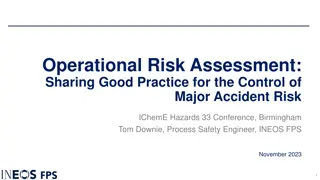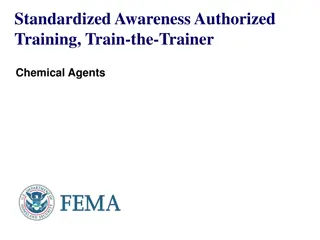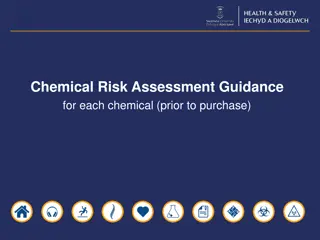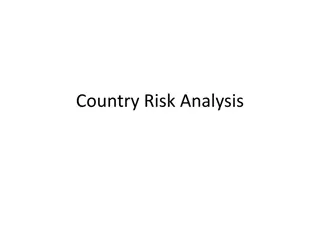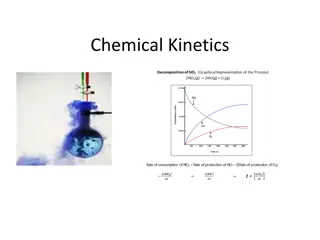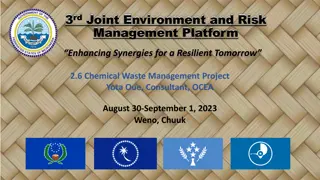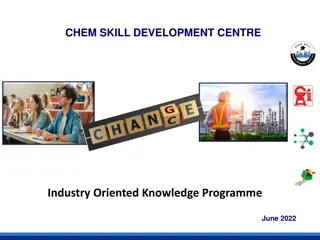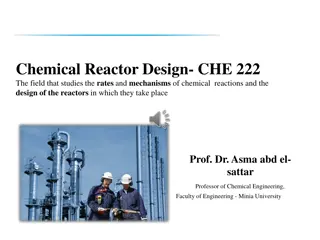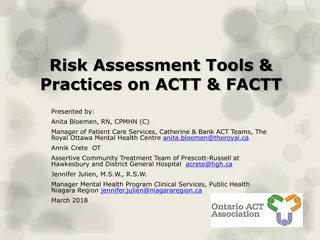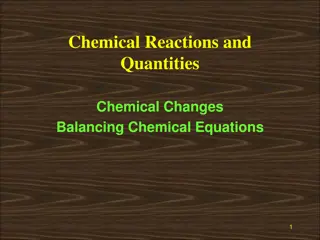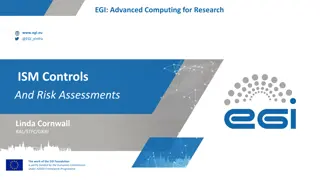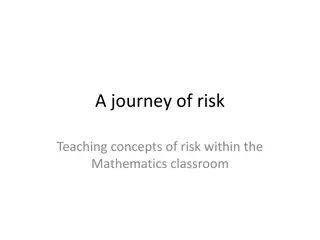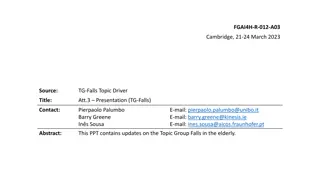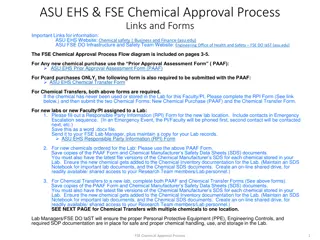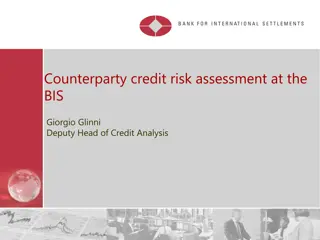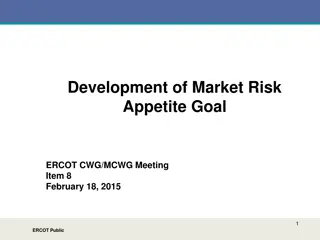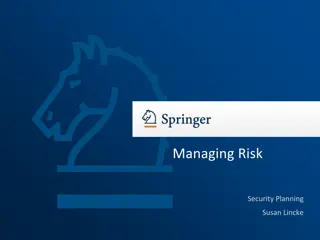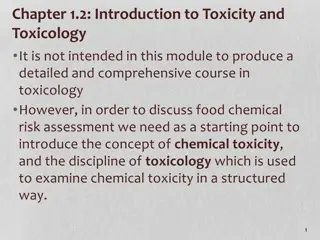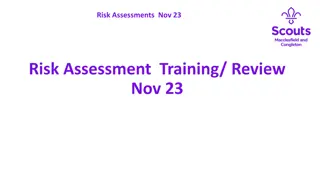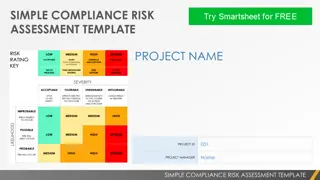Comprehensive Overview of Security Risk Analysis and Management
Explore the essential aspects of security risk analysis and management, including risk identification, assessment, and control techniques within an Information Security (InfoSec) context. Learn about the purpose of risk management, steps involved in a risk management plan, asset identification and c
0 views • 22 slides
Understanding Risk Management in Environmental Geography and Disaster Management
Risk management in environmental geography and disaster management involves assessing the potential losses from hazards, evaluating vulnerability and exposure, and implementing strategies to mitigate risks. It includes calculating risk, dealing with risk through acceptance, avoidance, reduction, or
1 views • 10 slides
Introduction to Flood Risk Assessment with HEC-FDA Overview
This presentation delves into flood risk assessment using HEC-FDA software, covering topics such as defining flood risk, components of uncertainty, consequences of flood risk, and methods to assess flood risk including hydrology, hydraulics, geotechnical, and economics. It explores the intersection
6 views • 39 slides
Overview of DSW End Point Assessment Team Leader Level 3
DSW End Point Assessment Team Leader Level 3 provides a clear understanding of the assessment process, ensuring individuals comprehend why and when it occurs, responsibilities involved, and how DSW supports them. It covers topics such as what End Point Assessment entails, assessment design and deliv
1 views • 18 slides
Operational Risk Assessment for Major Accident Control: Insights from IChemE Hazards 33 Conference
This content provides valuable insights into the importance of Operational Risk Assessment (ORA) in managing major accident risks in high hazard industries. It covers the necessity of ORA, identifying changes, risk assessment, and key success factors. Real-life examples like the Buncefield Terminal
0 views • 22 slides
Chemical Agents Awareness Training Overview
This training module covers standardized awareness and authorized training on chemical agents, including toxic industrial chemicals, riot control agents, and chemical warfare agents. Participants will learn about the physiological signs/symptoms, advantages/disadvantages of using chemical agents for
1 views • 20 slides
Comprehensive Chemical Risk Assessment Guidance Prior to Purchase
Conducting a thorough chemical risk assessment before purchasing any chemicals is crucial for ensuring safety in handling and storage. Key steps include identifying chemical specifics, hazard symbols, potential risks to pregnant or breastfeeding individuals, physical state, and required personal pro
0 views • 17 slides
Enhancing Chemical Formula Writing Skills for Students
This action research focuses on improving students' ability to write and name chemical formulas. The study addresses challenges in understanding and applying chemical concepts in a general chemistry course. Strategies include utilizing worksheets, group collaboration, and mobile applications to enha
2 views • 13 slides
Understanding Country Risk Analysis in International Business
Country risk analysis is crucial for multinational corporations (MNCs) to assess the potential impact of a country's environment on their financial outcomes. It includes evaluations of political and economic risks in foreign operations. Sovereign risk, political risk characteristics, and factors are
1 views • 61 slides
Understanding Chemical Kinetics: Rates of Reactions and Factors Influencing Them
Chemical kinetics delves into the speed of chemical reactions and the factors that influence reaction rates. This field explores how collisions between atoms, ions, or molecules drive chemical reactions, as well as the role of catalysts, reactant concentration, temperature, and surface area. By unde
0 views • 32 slides
Project Risk Management Fundamentals: A Comprehensive Overview
Project risk management involves minimizing potential risks and maximizing opportunities through processes such as risk management planning, risk identification, qualitative and quantitative risk analysis, risk response planning, and risk monitoring and control. Quantitative risk analysis assesses t
0 views • 41 slides
Enhancing Synergies for Resilient Tomorrow: Chemical Waste Management Project Overview
Enhancing Synergies for a Resilient Tomorrow outlines a project aimed at strengthening the Federated States of Micronesia's capacity in chemical management. The project focuses on monitoring and evaluating chemical use, enhancing legislative frameworks, and establishing a central database for chemic
1 views • 12 slides
Comprehensive Overview of Information Security Risk Assessment
Explore the agenda, strategies, frameworks, and resources related to effectively assessing information security gaps and risks in this detailed session. Learn about information risk, risk assessment goals, CIS resources, and the Duty of Care Risk Analysis Standard (DoCRA). Discover the importance of
0 views • 26 slides
Industry-Oriented Knowledge Programme by CHEM.SKILL.DEVELOPMENT.CENTRE June 2022
CHEM.SKILL.DEVELOPMENT.CENTRE (CSDC) offers an industry-oriented knowledge programme to bridge the gap between theory and practice. The objectives include enhancing employability, providing practical knowledge, building confidence, and understanding industry practices. The programme's strategy invol
0 views • 14 slides
Pennsylvania Risk Assessment: A Comprehensive Overview
This document explores the Pennsylvania risk assessment process, focusing on factors, techniques, and writing effective summaries. It covers learning objectives, agenda details, and the Pennsylvania Model Risk Assessment Form. Key points include understanding risk factors, making objective judgments
2 views • 8 slides
Overview of Chemical Reactor Design and Operation
Chemical reactor design involves studying the rates and mechanisms of chemical reactions, as well as the design of reactors for these reactions on a commercial scale. This field combines principles from thermodynamics, chemical kinetics, fluid mechanics, mass transfer, heat transfer, and economics t
0 views • 12 slides
Exploring Risk Assessment Tools and Practices in Community Mental Health Care
In March 2018, Anita Bloemen, Annik Crete, and Jennifer Julien presented insights on risk assessment practices in Assertive Community Treatment Teams. The focus was on enhancing frontline staff's comfort and confidence in delivering care outside hospital settings, emphasizing the need for ongoing aw
0 views • 32 slides
Understanding Chemical Changes and Reactions
Explore the concepts of chemical and physical changes, including balancing chemical equations, physical properties, and examples of chemical reactions. Learn to distinguish between physical and chemical changes through visual aids and learning checks.
0 views • 24 slides
Understanding Risk Concepts and Management Strategies in Finance
Explore the essential concepts of risk in finance, such as risk definition, risk profiles, financial exposure, and types of financial risks. Learn about risk vs. reward trade-offs, identifying risk profiles, and tools to control financial risk. Understand the balance between risk and return, and the
0 views • 18 slides
Risk and Return Assessment in Financial Management
This comprehensive presentation explores the intricacies of risk and return assessment in the realm of financial management. Delve into understanding risk concepts, measuring risk and return, major risk categories, and the impact of risk aversion on investment decisions. Gain insights into the manag
0 views • 62 slides
Risk Management and Security Controls in Research Computing
The European Grid Infrastructure (EGI) Foundation conducts risk assessments and implements security controls in collaboration with the EOSC-hub project. The risk assessments involve evaluating threats, determining likelihood and impact, and recommending treatment for high-risk threats. Results from
0 views • 13 slides
Risk Management & MPTF Portfolio Analysis at Programme Level for UN Somalia
This session delves into the world of risk management and portfolio analysis at the programme/project level, specifically focusing on the Risk Management Unit of the United Nations Somalia. It covers enterprise risk management standards, planned risk management actions, the role of RMU, joint risk m
0 views • 30 slides
Institutional Assessment and Effectiveness Workshop Achievements at SUNY Oneonta
The Office of Institutional Assessment and Effectiveness at SUNY Oneonta has made significant progress in developing assessment protocols and processes, leading to a culture of assessment. This includes completing planning and assessment cycles, establishing objectives and procedures, and aligning u
1 views • 16 slides
Alcohol and Cancer Risk: Understanding the Links
Alcohol consumption is linked to an increased risk of various cancers, including mouth, throat, esophagus, breast, liver, and colorectal cancers. Factors such as ethanol, acetaldehyde, nutrient absorption, estrogen levels, and liver cirrhosis play a role in this risk. Even light drinking can elevate
0 views • 17 slides
Understanding Risk Concepts in the Mathematics Classroom
Risk is a concept integral to decision-making in various aspects of life. This resource explores how risk is defined in the real world, its relevance in the classroom, and strategies for teaching risk literacy to students. It delves into the multiple definitions of risk, risk analysis, and the emoti
0 views • 62 slides
Risk Analysis in Environmental Management: A Comprehensive Overview
Risk analysis plays a crucial role in environmental management, particularly in assessing potential health hazards and managing associated risks. This process involves risk assessment and risk management, with steps such as hazard identification, exposure assessment, dose-response assessment, and ri
0 views • 27 slides
Advances in Fall Risk Assessment and Management for Older Adults
This presentation delves into updates on the stratification tool for fall risk in community-dwelling older adults, emphasizing the importance of early intervention through opportunistic health visits. It discusses a decision tree model for assessing fall risk, highlighting the significance of histor
0 views • 12 slides
Understanding Physical and Chemical Changes in Science Class
Explore the concepts of physical changes and chemical reactions in this interactive science lesson. Students will differentiate between the two types of changes, identify evidence for each, categorize examples, and discuss key concepts with their peers at the table. Through videos and discussions, t
0 views • 21 slides
ASU EHS & FSE Chemical Approval Process Guidelines
Detailed guidelines and forms for the chemical approval process at ASU, including links to important resources, forms for new chemical purchases and transfers, responsibilities for lab managers, and procedures for chemical transfers. The process involves completing forms such as the Prior Approval A
0 views • 5 slides
Regulatory Frameworks and Risk Assessment in Chemical and Consumer Industries
Explore the intricate regulatory landscape encompassing laws like REACh, TSCA, and the EU Cosmetics Directive, which govern the chemical and consumer products industries. Dive into concepts such as risk assessment, predictive toxicology, and the use of analogs in decision-making. Discover how these
0 views • 31 slides
Understanding Chemical Reactions in Daily Life
Understanding chemistry, particularly chemical reactions, is crucial for our daily lives. Chemical reactions involve the transformation of substances into different ones, described by reactants and products in equations. By learning about chemical equations, word equations, formula equations, and th
0 views • 15 slides
Counterparty Credit Risk Assessment at the BIS: Approaches and Factors to Consider
The presentation discusses various approaches for assessing counterparty credit risk at the BIS, including full reliance on external ratings, internal risk assessment, and combinations of both. Factors such as credit risk exposures, regulatory requirements, organizational impact, skillset availabili
0 views • 36 slides
Understanding Ionic Bonding and Lattice Energy in Chemistry
Chemical bonds play a crucial role in holding atoms together in molecules. This course explores the concept of chemical bonding, focusing on ionic bonds and lattice energy. Topics covered include the different types of chemical bonds, such as electrovalent and coordinate bonds, as well as the models
0 views • 22 slides
Understanding Organizational Risk Appetite and Tolerance
Explore the development of market risk appetite goals and how to define and establish organizational risk tolerance. Learn about the Classic Simplified View of Risk Tolerance and different methods to determine risk appetite. Discover the importance of assessing market risk impact and aligning risk t
0 views • 8 slides
Developing a Risk Appetite Culture: Importance and Framework
Risk management plays a critical role in the success of corporations, with strategy and risk being intertwined. This presentation delves into definitions of key terms such as risk appetite, the Risk Appetite Cycle, characteristics of a well-defined risk appetite, and the importance of expressing ris
0 views • 31 slides
Security Planning and Risk Management Overview
This content provides an in-depth exploration of managing risk, security planning, and risk appetite in the context of cybersecurity. It covers essential concepts such as risk management process, threat types, risk analysis strategies, vulnerability assessment, and risk mitigation techniques. The ma
0 views • 73 slides
Introduction to Toxicity and Toxicology in Food Chemical Risk Assessment
This module introduces the concept of chemical toxicity and the discipline of toxicology in relation to food chemical risk assessment. It touches upon historical aspects, such as the case of Socrates' death by hemlock, the contributions of Mathieu Joseph Bonaventure Orfila in forensic toxicology, an
0 views • 18 slides
Best Practices for Chemical Hygiene and Safety in Laboratories
Responsibilities of the Chemical Hygiene Officer (CHO) include implementing the Chemical Hygiene Plan (CHP), monitoring the chemical life cycle, arranging staff training, conducting safety inspections, assisting staff, and maintaining records. Principals and Science Department Heads support staff in
0 views • 18 slides
Comprehensive Risk Assessment Training Overview
In this risk assessment training session held on November 23, participants reviewed the process of writing and reviewing risk assessments to enhance the quality of assessments for safer scouting experiences. The training aimed to improve leaders' skills and confidence in risk assessment practices wh
0 views • 37 slides
Compliance Risk Assessment Template Project Report
This project report presents a simple compliance risk assessment template along with post-mitigation judgment, risk severity, risk level, mitigations, warnings, and remedies. It includes information on communication controls, risk severity levels, acceptability judgments, likelihood assessments, and
0 views • 5 slides




